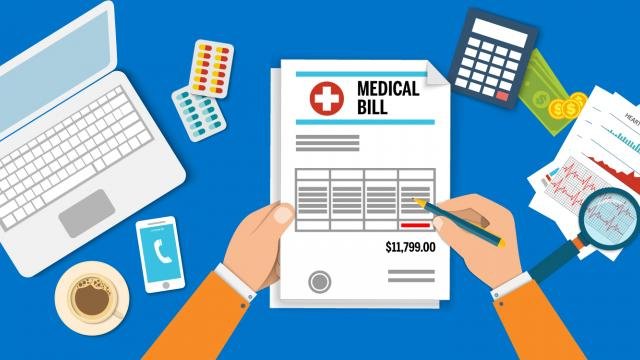Balance billing also referred to as surprise billing takes place when a patient tends to receive all the necessary services that are believed to fall under the aspect of “in-network” but instead were billed as if they were a part of the “out-network” thereby resulting in quite the expensive medical services. Balance billing also takes place when the outpatient or inpatient have private insurance which does not tend to cover all of the crucial service cost that the patient might have otherwise calculated. Surprise billing in the US has definitely become one of the most important concerns for a number of patients.
Understanding Pre-Covid Balance Billing

The aspect of balance billing has been there since the pre-covid times. This long and drawn out battle has been going on for quite some time, patients tend to receive medical bills that they had not foreseen before. When a patient tends to receive emergency care, under the Affordable Care Act, they are eligible for payment of rates that seem to be reasonable. Even though, these rates can be lesser than what the medical provider must be charging. Therefore, insurance payers can put certain medical bills on the patients on the amount that is outstanding.
How Big Are Surprise Balance Bills?

Surprise billings tend to occur when certain kinds of medical providers including radiologists, anesthesiologists, pathologists may not be under the same contract with your insurance provider even when they are working at the same health facility. Therefore, this results in extra charges that you as a patient have to pay separately. Depending on the services that you have received as a patient, the medical bills can vary according to that.
The latest Act of Balance Billing Protection prevents the patient and the patient party from receiving surprise medical bills when they have received all the necessary care from any particular medical or health facility. When such a situation occurs it must be remembered that if a health provider or a medical insurer cannot agree on a certain amount of price that must be paid for all the services that have been covered, then they go to adjudication and therefore cannot proceed with the billing process for any consumer for the amount that is under dispute.
What Causes Surprise Billings?
Health costs are one of the most expensive burdens to bear for any American out there. There have been several estimates where it was found out that one out of every five in-patient emergency visits can lead to medical surprise bills. This persistent problem has been quite a topic for discussion among many lawmakers because these bills have had a massive impact on a number of patients that can be deemed as unfair. There are certain reasons that could lead to surprise medical bills, let’s take a look.
When it comes to medical services, the cost is always a dominant cause for concern. Health insurers tend to seek out hospitals and medical providers who accept a lower amount of payment for every patient in return for a bigger number of patients. This process in turn leads to the creation of networks that tend to exclude higher-priced medical providers and henceforth, narrows down the network of all the available hospitals and medical providers out there. When patients get proper care from “out of network” medical providers and organizations, plans that fall under a narrow network might not be able to cover it all.
This phenomenon of narrow-network in turn gives rise to the aspect of surprise billing. When a patient gets admitted to the ER they might use in-network healthcare facilities but the care that they end up receiving might be from consulting physicians. This can lead to surprise billing for emergency services. The same can occur in non-emergency situations where unforeseen complications require the services of medical professionals who are not under any contract. For instance, a patient might have had a replacement surgery from a surgeon and a hospital who falls under the in-network. But when a post-operative complication comes forwards, if an out-of-network doctor sees the patient then that leads to surprise bills for the patient.
How To Prevent Surprise Billings?
There are certain ways that you can use in order to prevent surprise billings.
1. Research billing codes and preventive care coverage
Many medical plans tend to cover the entirety of preventive care, but when it comes to new technologies it can oftentimes lead to surprise medical bills. Before you go for your next scheduled medical visit, it is important to ensure that you have all the information regarding the medical billing codes for all the services and tests that you have to get. Each of the medical services has a special 6-digit code that helps in determining the cost. Cross-check with your insurance company about whether or not the test codes fall under your health plan.
2. Ask your medical providers to use in-network MRIs, bloodwork and all the other tests
Out of network facilities can add up to a lot that might not be covered by insurance payers. When your medical providers want certain tests to be performed make sure that you ask them whether the tests are a part of in-network or not. This way no surprise billing can come your way whatsoever.
3. Look for the best prices on all medical procedures and tests
When it comes to a routine blood test it can vary a lot for different medical institutions. If you are aware of the medical billing code that is used by the procedure that you have to get then comparing the prices of the same in different organizations is always recommended. This way you can see which organization provides the best services for the lowest cost possible.
One of the things that you must also look out for is the “facility fees” which a lot of medical organizations tend to charge for the equipment and space they are providing. If you are searching for the right company to outsource your healthcare firm’s medical billing, Synergy HCLS can be an ideal option to consider.


